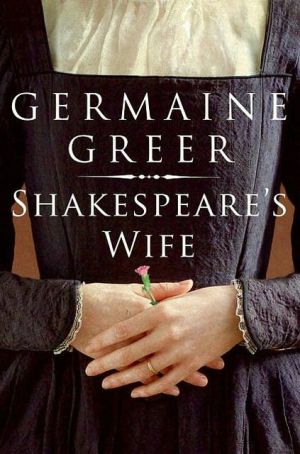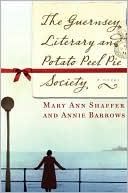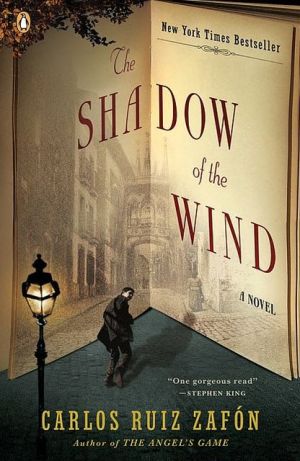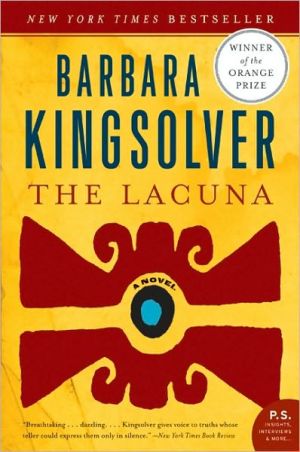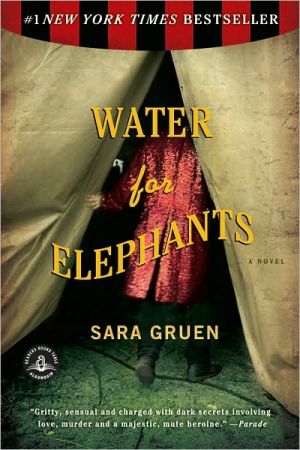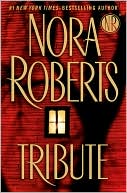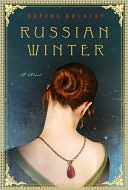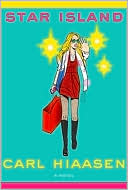Shakespeare's Wife
Little is known about Ann Hathaway, the wife of England's greatest playwright; a great deal, none of it complimentary, has been assumed. The omission of her name from Shakespeare's will has been interpreted as evidence that she was nothing more than an unfortunate mistake from which Shakespeare did well to distance himself.\ While Shakespeare is above all the poet of marriage—repeatedly in his plays, constant wives redeem unjust and deluded husbands—scholars persist in positing the worst...
Search in google:
Little is known about Ann Hathaway, the wife of England's greatest playwright; a great deal, none of it complimentary, has been assumed. The omission of her name from Shakespeare's will has been interpreted as evidence that she was nothing more than an unfortunate mistake from which Shakespeare did well to distance himself. While Shakespeare is above all the poet of marriage repeatedly in his plays, constant wives redeem unjust and deluded husbands scholars persist in positing the worst about the writer's own spouse. In Shakespeare's Wife, Germaine Greer boldly breaks new ground, combining literary-historical techniques with documentary evidence about life in Stratford, to reset the story of Shakespeare's marriage in its social context. With deep insight and intelligence, she offers daring and thoughtful new theories about the farmer's daughter who married England's greatest poet, painting a vivid portrait of a remarkable woman. A passionate and perceptive work of first-rate scholarship that reclaims this maligned figure from generations of scholarly neglect and misogyny, Shakespeare's Wife poses bold questions and opens new fields of investigation and research.The Barnes & Noble ReviewLiterary historians have not been kind to Ann Shakespeare, née Hathaway. She is painted as old, ugly and desperate, leading poor William astray, trapping him into a loveless marriage at age 18 (she was a ripe 26). Or maybe she was beautiful and sexually experienced and...unfaithful. Perhaps her talented husband hated her -- or lived in fear of her. In fact, little is known about William Shakespeare's wife, the mother of his three children, whom he married in 1582. "All biographies of Shakespeare are houses built of straw, but there is good straw and rotten straw, and some houses are better built than others," writes feminist icon Germaine Greer in her new book. "The evidence that is always construed to Ann Hathaway's disadvantage is capable of other, more fruitful interpretations, especially within the context of recent historiography." Greer attempts to right what she sees as a profound wrong at the hands of the "Shakespeare wallahs" who have remade the Bard "in their own likeness...incapable of relating to women" by undertaking a "systematic review of the evidence against Ann Shakespeare." Parsing parish and court records, letters, historical materials, and Shakespeare's own work, she redraws Ann as capable and independent. The portrait may be a complete fantasy, as Greer blithely admits -- "If Ann Shakespeare had both skill and business acumen, she could have become a wealthy woman in her own right," she writes in a typical passage. "So far we don't know that she did, but we don't know that she didn't either." But though Ann's image remains hazy, a detailed, compelling picture emerges of what it was like to be a wife and mother in Shakespeare's time. --Amy Reiter
Chapter One \ Introducing the extensive and reputable family of Hathaway alias Gardner of Shottery together with the curious fact that one of their kinsmen was a successful playwright for the Admiral's Men\ \ Shakespeare's wife was identified as long ago as 1709, when Nicholas Rowe informed the readers of his edition of the plays: 'His wife was the daughter of one Hathaway, said to have been a substantial yeoman in the neighbourhood of Stratford." There were many Hathaways within a day's ride of Stratford. Hathaways farmed in Bishopton and Shottery in Warwickshire, and in Horton, Bledington, Kingscote and surrounding districts in neighbouring Gloucestershire. There were also tradesmen called Hathaway in London, Banbury and Oxford, and one or two claimed the rank of gentleman. The Hathaway horde was so numerous in fact that the Shottery family into which Ann was born used a distinguishing alias. They were known mostly as Hathaway alias Gardner, and sometimes as just plain Hathaway or just plain Gardner.\ In the medieval period such aliases served to distinguish between people with the same surname by specifying the region or town they came from or the trade they followed. Perhaps an earlier Hathaway had indeed been a gardener. Sometimes, when there was no male heir, a female descendant's husband might inherit on condition that he assumed her family name as an alias. The point of aliases is still being disputed by genealogists; although during Ann Shakespeare's lifetime the use of aliases became less consistent, it was a generation or two before it faded out altogether. We know that Ann's grandfather John Hathaway was already using the alias, so it is not something we are likely ever to unravel. For years nobody realised that the 'Jone Gardner of Shottery' who was buried in Holy Trinity churchyard in 1599 was the same person they had already identified as Ann Shakespeare's stepmother. In 1590 a 'Thomas Greene alias Shakespeare' was buried in Holy Trinity Church Stratford, sending historians off on a wild-goose chase for a woman called Greene giving birth to an illegitimate Shakespeare, or vice versa, for the alias was occasionally used for de facto wives and to denote descent on the wrong side of the blanket.\ The Christian name of the woman who married William Shakespeare in 1582 is as unstable as her surname. The only evidence that Richard Hathaway alias Gardner of Shottery had a daughter called Ann is a reference in his will to a daughter called Agnes. Scholars have demonstrated convincingly that in this period Agnes and Ann were simply treated as versions of the same name, pointing out dozens of examples where Agnes, pronounced 'Annis', gradually becomes 'Ann'. Richard Hathaway left a sheep to a great-niece he calls Agnes, though according to the parish record she was actually christened Annys; in 1600 she was buried as Ann. Theatre manager Philip Henslowe called his wife Agnes in his will but she was buried as Ann. Ann's brother Bartholomew called a daughter Annys, but she was buried as Ann. The curate William Gilbert alias Higgs who wrote Hathaway's will married Agnes Lyncian, but she was buried as Ann Gilbert. This is not simply serendipitous. Agnes was the name of a fourth-century virgin martyr of the kind whose lurid and preposterous adventures are the stuff of The Golden Legend, justly ridiculed by protestant reformers. Ann (or Hannah) was the solid biblical name of the Redeemer's grandmother. It is only to be expected that as protestantism gained hearts and minds Agnes would be silently driven out by Ann. We may accept that the child born Agnes Hathaway grew up to be Ann Shakespeare.\ The brass plate set in the stone over her grave next to William's in the chancel of Holy Trinity Church Stratford tells us that Ann Shakespeare 'departed this life on the sixth day of August 1623 being of the age of 67 years'. We have no evidence to corroborate this information. If the funeral plate is correct she was born in 1556, eight years before her husband. Engravers do make mistakes; the figures 1 and 7 are easily confounded in the calligraphy of 1623, but as all Ann's family was baptised at Holy Trinity, where the registers began to be kept in obedience to the royal edict of 1558, we must conclude that she was born before the register began to be kept, and not afterwards. So 1556 it is.\ Our best evidence that Agnes Hathaway alias Gardner of Shottery is the woman who married Will Shakespeare in 1582 is the will made in 1601 by her father's shepherd Thomas Whittington. Whittington is identified in Richard Hathaway's will: 'I owe unto Thomas Whittington my shepherd four pounds six shillings eight pence.' Twenty years on, when he made his will in 1601, Whittington identified Ann as Shakespeare's wife:\ Item I give and bequeath unto the poor people of Stratford forty shillings that is in the hand of Ann Shakespeare wife unto Mr William Shakespeare and is due debt unto me being paid to mine executor by the said William Shakespeare or his assigns according to the true meaning of this my will.\ The Hathaway family house is supposed to be the one that is now known as Ann Hathaway's Cottage, though indeed it was never hers. This twelve-roomed farmhouse, known to the Hathaway family, if not to the bardolatrous public, as Hewlands Farm, is built on stone foundations, of timber-framed wattle-and-daub. The oldest part of the dwelling, thought to date from the late fourteenth century, consists of a hall of two twelve-foot bays reaching to the timbered roof, constructed around two oaken crucks that are pinned together to form the peak of the roof Before the Great Rebuilding of the 1560s, all the members of the household would have slept in the hall, around an open fireplace from which the smoke escaped through an opening in the thatch.\ Ann's paternal grandfather, John Hathaway alias Gardner, acquired the copyhold of Hewlands Farm in 1543 and it was probably he who modernised the house by installing stone fireplaces in each of the two bays of the hall, one eight feet across and the other eleven. The stone hearths were also the supports for stout oak bressemers supporting an upper floor which was divided into separate connecting rooms. On the ground floor, next to the hall, there was a kitchen with a huge domed bread-oven. A dairy or buttery has also survived. An east wing was added to the main building later, probably by Ann's brother, Bartholomew Hathaway.
\ Kate RoipheIn A Room of One's Own, with its famous riff on Shakespeare's sister, Virginia Woolf wrote that when one tries to picture the life of an Elizabethan woman, "one is held up by the scarcity of facts. One knows nothing detailed, nothing perfectly true and substantial about her. History scarcely mentions her.…What one wants, I thought—and why does not some brilliant student at Newnham or Girton supply it?—is a mass of information; at what age did she marry; how many children had she as a rule;…did she do the cooking; would she be likely to have a servant? All these facts lie somewhere, presumably, in parish registers and account books; the life of the average Elizabethan woman must be scattered about somewhere, could one collect and make a book of it. It would be ambitious beyond my daring." And now the book written by a brilliant student from Newnham, dreamed of by Virginia Woolf in the last century, exists: lively, rigorous, fiercely imagined.\ —The New York Times\ \ \ \ \ Elaine ShowalterIn this partly scholarly, partly speculative, consistently lively book, the feminist and Renaissance scholar Germaine Greer has set out to rescue Hathaway from centuries of slurs by sneering academics, biographers and what she calls "bardolaters" and to propose a much more significant and important life for her…Let's face it: No one really knows how Shakespeare's marriage worked. Greer is fascinating nevertheless on the lives of ordinary Elizabethan women. Searching court records, diaries, memoranda, wills and especially the work of British historian Peter Laslett in The World We Have Lost, she reconstructs the routines of Elizabethan milkmaids and housewives, examines the agriculture, industry and economy of 16th-century Stratford, and sets out courtship patterns, attitudes toward premarital pregnancy, ages of marriage and communal rituals of childbirth and child burial.\ —The Washington Post\ \ \ Library JournalThough very little is known about Ann Hathaway, the wife of England's greatest playwright, much, as Greer (The Female Eunuch) writes here, has been assumed. Greer argues that Hathaway's omission from Shakespeare's will has been misinterpreted by historians set on creating Shakespeare in their own image (namely, by assuming that he, like them, must have had difficulty relating to women) as evidence that Hathaway was homely and shrewlike and drove Shakespeare away from Stratford and his family toward London and his writing. By reinterpreting available historical evidence and offering a skillful new reading of Shakespeare's most famous sonnets and plays, Greer rescues Hathaway from the graveyard of the forgotten wives of famous men and places her firmly within her own time and social context. This excellent portrait of an early modern woman in all of her richness and complexity belongs in academic and larger public libraries.\ —Deborah Hicks\ \ \ \ \ \ Kirkus ReviewsLongtime feminist provocateur Greer (Whitefella Jump Up: The Shortest Way to Nationhood, 2004, etc.) proffers a wildly far-fetched "biography" of the Bard's underdocumented spouse. The author blithely disregards the perils of extrapolating a historical record from Shakespeare's writing in this glue-and-scissors account. Greer is annoyed by the bad rap Ann Hathaway has earned from most Shakespearean scholars, who assume that because Ann was eight years older she lured the 18-year-old glover's boy into an early marriage and made him so miserable that he skirted off to London for most of their adult lives. Because there is very little on record except dates of birth, marriage and lawsuits, Greer works by examining the parallel lives of Ann's siblings and Stratford's inhabitants: how they lived, worked and died and what their expectations of marriage were at the time. The author asserts, for example, that Ann was probably a farm servant, could read the Bible a little and was left to fend for herself and the children when Will left around 1587. Greer suggests that the purchase of New Place in 1597, usually seen as part of Shakespeare's "gentrification project," was "very much more likely" instigated by Ann, who ran a lively business in malt-making and money-lending from the enormous Stratford house. The fact that the scant documents relating to such activities are all in Will's name is waved away: "the dealings of married women were invariably subsumed within their husband's." Using Shakespeare's poetry as evidence, Greer insists that Ann must have loved and missed Will very much. She suggests that, far from being a chronicle of homosexual and adulterous love, some or all of the Sonnets mayhave been written for Ann. She is, to put it mildly, overanalyzing her sources. An exasperating work that edifies only with its intensive study of the era's mores; it can be used as a sociological study of Elizabethan women, but it doesn't offer a plausible judgment of Ann Hathaway Shakespeare. Agent: Emma Parry/Fletcher & Parry\ \ \ \ \ Katie Roiphe"Lively, rigorous, fiercely imagined…an ingenious new book…"\ \ \ \ \ Victoria Glendinning"A riveting read…Not only Greer’s scholarship but her sympathy and her imagination are fully engaged."\ \ \ \ \ Marilyn French"A richly textured account…Greer’s theory about Shakespeare’s relation with his wife is original and persuasive…She reminds us of facts other critics have ignored."\ \ \ \ \ Entertainment Weekly"Fascinating…Greer meticulously exposes the sexist biases underlying depictions of Ann…and re-creates in lavish detail the material realities of women’s lives in 16th century England."\ \ \ \ \ Booklist"Intriguing . . . A portrait of life in Stratford circa 1600 on almost every level and in every aspect."\ \ \ \ \ The Barnes & Noble ReviewLiterary historians have not been kind to Ann Shakespeare, née Hathaway. She is painted as old, ugly and desperate, leading poor William astray, trapping him into a loveless marriage at age 18 (she was a ripe 26). Or maybe she was beautiful and sexually experienced and...unfaithful. Perhaps her talented husband hated her -- or lived in fear of her. In fact, little is known about William Shakespeare's wife, the mother of his three children, whom he married in 1582. "All biographies of Shakespeare are houses built of straw, but there is good straw and rotten straw, and some houses are better built than others," writes feminist icon Germaine Greer in her new book. "The evidence that is always construed to Ann Hathaway's disadvantage is capable of other, more fruitful interpretations, especially within the context of recent historiography." Greer attempts to right what she sees as a profound wrong at the hands of the "Shakespeare wallahs" who have remade the Bard "in their own likeness...incapable of relating to women" by undertaking a "systematic review of the evidence against Ann Shakespeare." Parsing parish and court records, letters, historical materials, and Shakespeare's own work, she redraws Ann as capable and independent. The portrait may be a complete fantasy, as Greer blithely admits -- "If Ann Shakespeare had both skill and business acumen, she could have become a wealthy woman in her own right," she writes in a typical passage. "So far we don't know that she did, but we don't know that she didn't either." But though Ann's image remains hazy, a detailed, compelling picture emerges of what it was like to be a wife and mother in Shakespeare's time. --Amy Reiter\ \
